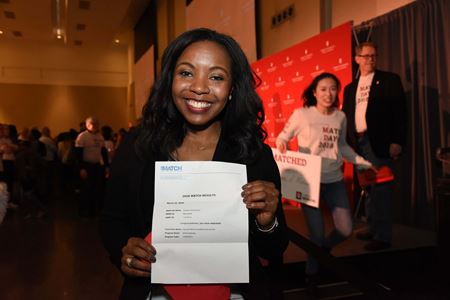Match Day 2019: Alumna Burks looks back, lends advice for big day
Katie Duffey Mar 11, 2019

Ciersten Burks at Match Day 2018
Author
Katie Duffey
Katie Duffey is the executive director of strategic communications and marketing at the Indiana University School of Medicine, leading efforts that strengthen the school’s visibility and support its clinical, research and educational mission. A former journalist, she brings more than a decade of communications experience to her role.
The views expressed in this content represent the perspective and opinions of the author and may or may not represent the position of Indiana University School of Medicine.